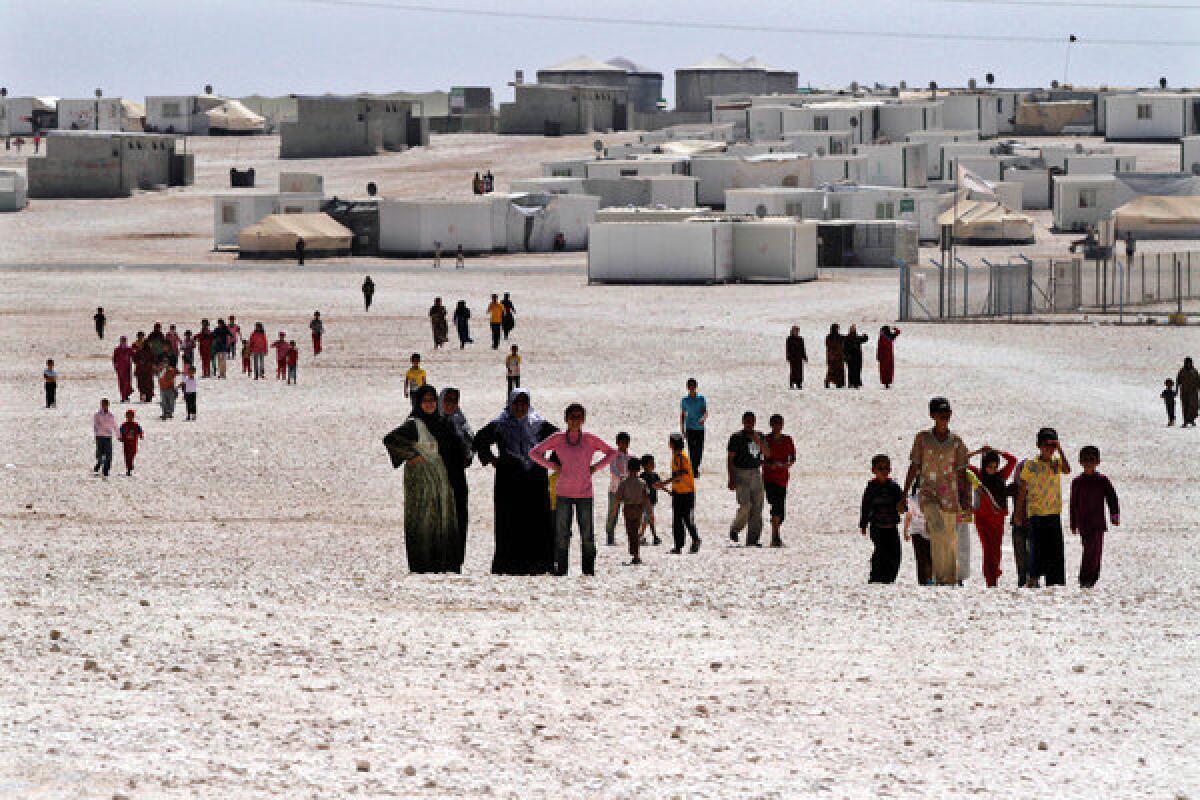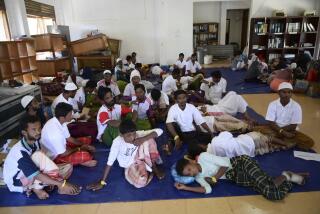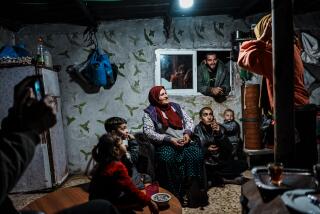International concern rises as Syria’s neighbors limit refugee flow

WASHINGTON – International concern is rising as Syria’s neighboring countries, overburdened with refugees fleeing the war, are sharply reducing the number they allow into their territory.
Turkey, Iraq and Jordan, which have taken 1.1 million of the 1.9 million Syrians who have left the country, have reduced entry sharply, worried about the cost of caring for the refugees and the risk they may pose.
“Tens of thousands of people are at risk of being trapped,” Kristalina Georgieva, the European Union’s commissioner for humanitarian aid, said in an interview in Washington earlier this week.
Iraq, which has about 160,000 Syrian refugees, has cut the flow “to a trickle,” Antonio Guterres, the United Nations High Commissioner for Refugees, told reporters last month. Turkey, which has four times more Syrian refugees than officials believe can be adequately handled, has begun “carefully managing” entries at the border.
Jordan, which has 512,000 refugees, denies that it has closed its borders. But the inflow to the country’s huge refugee camp, Za’atari, has fallen from 2,000 a day to about 100 a day, U.N. officials say.
Some border crossings have been closed down entirely, and at others, guards have become far more selective in who they allow in. They screen men of military age especially closely.
Georgieva said Syria’s neighbors should be thanked for the burden they have taken on. But she warned that border closings could deepen a catastrophe that is on track to become the worst refugee crisis of the modern era. She urged the countries to accept the most infirm and vulnerable.
More than 100,000 people have died since the war began more than two years ago, according to the U.N.
Lebanon has taken in 669,000 refugees, more than any other country. Until recently, it was not stopping any Syrians at the border, largely because its weak government was unable to do so, diplomats said. But in recent weeks, Lebanon, too, has stepped up efforts to halt entry.
Human Rights Watch said the Kurdistan Regional Government in northern Iraq has shut its borders to all but what it has deemed “humanitarian cases.” The rights group said Syrian refugees told its researchers that Jordanian border guards have held them back for weeks in some cases.
Egypt, which has 90,000 Syrian refugees, began halting commercial flights into the country in July, and began imposing visa requirements for Syrians to reduce the flow.
Under a 1951 international agreement, countries are not allowed to refuse entry to refugees who face a mortal risk if they remain in their home country.
Human Rights Watch has criticized the U.N. for saying the neighbors are justified in trying to halt the entry of “dangerous infiltrators,” saying it should not justify turning refugees away.
But some U.S. officials have acknowledged there is a risk that the Syrian government will send agents into Jordan to cause violence that destabilizes the monarchy in hopes of discouraging it from helping rebel forces.
The continued exodus has U.N. officials contemplating more drastic measures. U.N. officials are now speaking openly about beginning a huge effort to resettle refugees in the West, an idea likely to prove controversial.
Guterres said in a July 24 interview with Britain’s Guardian newspaper that if the war continues, as is likely, the U.N. will need to make resettlements of Syrians to the West “a central part of our strategy.”
He said it should be “as massive as the program for the Iraqis,” which brought more than 100,000 refugees to new homes in the West in the years after the U.S.-led invasion that toppled Iraqi President Saddam Hussein.
While the State Department has signaled a willingness to resettle some of the Syrian civil war’s most vulnerable refugees, a large-scale resettlement effort to the United States would probably face resistance.
ALSO:
Egypt military says protesters use children as human shields
Iran’s new leader causes furor with remarks about Israeli occupation
Can Brazil fix mistakes from Pope Francis visit in time for World Cup?
More to Read
Start your day right
Sign up for Essential California for news, features and recommendations from the L.A. Times and beyond in your inbox six days a week.
You may occasionally receive promotional content from the Los Angeles Times.







